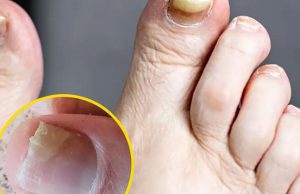If You Keep Having Headaches, There May Be 5 Reasons Behind
1. Dehydration (Not Drinking Enough Water)
This is a common cause of headaches.
Your body becomes less efficient at maintaining the balance of fluids and electrolytes when you don’t drink enough water. This can lead to a headache.
Dehydration can also cause blood volume to drop, reducing the flow of oxygen and nutrients to the brain.
To prevent dehydration headaches, you need to stay adequately hydrated by drinking water throughout the day.
2. Changes in Sleep Patterns (Changing Your Sleep and Waking Up Time)
Sleep is crucial for the body’s overall well-being, and disruptions to your sleep patterns can lead to tension headaches or migraines. Irregular sleep patterns, such as not getting enough sleep, shifting your sleep schedule dramatically, or experiencing poor sleep quality, can trigger headaches.
Maintaining a consistent sleep schedule and practicing good sleep hygiene can help reduce the risk of headaches.

3. Skipping Meals (Not Eating on Time):
Skipping meals or going long periods without eating can cause low blood sugar levels and this can lead to headaches.
When your blood sugar drops too low, your brain may not receive enough glucose, causing a headache.
To prevent these types of headaches, try to eat regular, balanced meals and snacks throughout the day to maintain stable blood sugar levels.
4. Excessive Use of Headsets or Earpieces
Prolonged use of headsets or earpieces can contribute to tension headaches or even migraines, especially if they put pressure on your head or ears.
The constant pressure and noise exposure can lead to muscle tension and stress, which are common headache triggers.
To reduce the risk of headaches, take breaks, adjust your headset for comfort, and limit the duration of use.

5. Constipation
It is thought the connection between constipation and headaches is related to the shared nerves and blood vessels between the colon and the head.
When constipated, there can be increased pressure in the abdomen, potentially leading to a headache.
When you maintain a diet high in fiber, stay hydrated, and are physically active, it can help prevent constipation-related headaches.





















